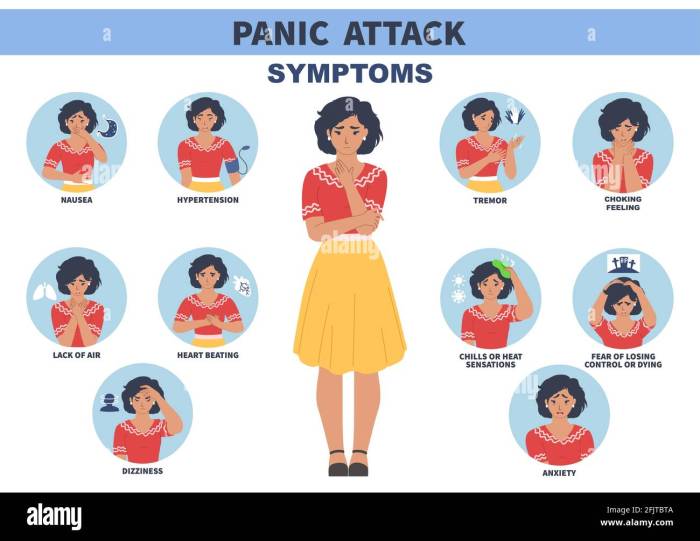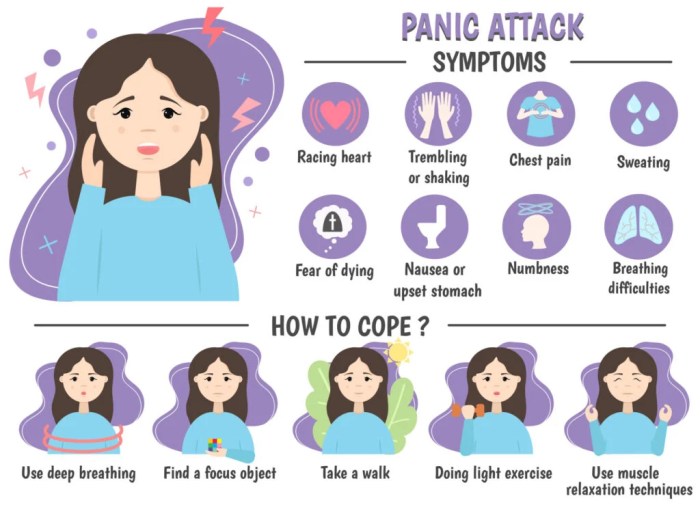When severe panic attack symptoms strike, they can leave you feeling like you’re trapped in a whirlwind of fear and discomfort. Understanding these symptoms and developing coping mechanisms is crucial for regaining control and living a fulfilling life.
From pounding heartbeats and shortness of breath to overwhelming thoughts and a sense of impending doom, severe panic attacks manifest in a myriad of ways, impacting both your physical and mental well-being.
Severe Panic Attack Symptoms
Severe panic attacks are characterized by a sudden onset of intense fear and anxiety that can be debilitating. These attacks often involve a range of physical, cognitive, emotional, and behavioral symptoms.
Physical Symptoms of Severe Panic Attacks

Physical symptoms of severe panic attacks can include:
- Chest pain or discomfort
- Shortness of breath or hyperventilation
- Sweating
- Shaking or trembling
- Nausea or vomiting
- Dizziness or lightheadedness
- Numbness or tingling sensations
- Hot or cold flashes
These physical symptoms can be extremely distressing and can lead to significant distress and impairment.
Cognitive and Emotional Symptoms of Severe Panic Attacks, Severe panic attack symptoms

Cognitive and emotional symptoms of severe panic attacks can include:
- Feelings of impending doom or disaster
- Fear of losing control or going crazy
- Intrusive thoughts or images
- Cognitive distortions (e.g., catastrophizing, overgeneralization)
- Confusion or disorientation
- Emotional numbing or detachment
These cognitive and emotional symptoms can be equally distressing and can lead to significant psychological distress.
End of Discussion: Severe Panic Attack Symptoms

Remember, severe panic attacks are manageable. With the right treatment and support, you can learn to identify triggers, manage symptoms, and reclaim your life from the clutches of anxiety. Seeking professional help is essential for developing personalized strategies that empower you to overcome these challenges.
Questions and Answers
What are the most common physical symptoms of severe panic attacks?
Chest pain, shortness of breath, sweating, trembling, and dizziness are some of the common physical manifestations.
How do panic attacks affect mental health?
Panic attacks can trigger intense fear, feelings of losing control, and cognitive distortions, negatively impacting mental well-being.
What are some effective coping strategies for severe panic attacks?
Deep breathing exercises, mindfulness techniques, and cognitive reframing can help manage symptoms and reduce anxiety.